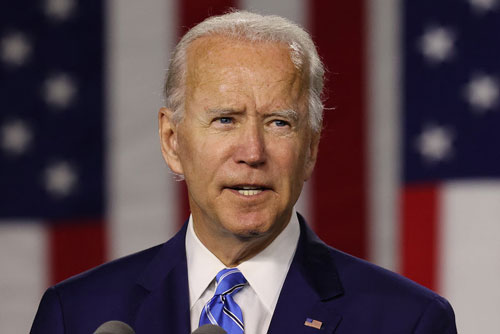Washington
President Joe Biden meets South Korean President Moon Jae-in at the White House on Friday to underscore a strategic focus on Asia, while playing down chances of quick progress on the two biggest challenges facing the United States.
The rising power of China as a rival for leadership in Asia and the powder keg of nuclear-armed North Korea loom over the talks.
The Biden administration admits it has no easy answer to either. “The goal here is to understand that this process is likely to be challenging and to give ourselves maximum flexibility,” a senior White House official said about dealing with North Korea’s nuclear arsenal.
Against that backdrop, Washington’s main emphasis is on rebuilding traditional US alliances in the region, especially with South Korea and Japan.
Where Donald Trump treated foreign partners alternately as cut-throat business competitors or freeloaders, Biden is once more leaning on democratic alliances forged in bloody 20th century conflicts as the core to maintaining US supremacy.
Moon comes to Washington as Biden’s second foreign guest. Japanese Prime Minister Yoshihide Suga, visiting in April, was the first.
The US-South Korean relationship “is the lynchpin of security and prosperity for northeast Asia and a free and open Indo-Pacific,” the White House official, who asked not to be identified, said.
“President Biden will reaffirm that ironclad commitment.”
Symbolizing the deep, complex history behind those bonds, Moon will join Biden in awarding the Medal of Honor—the highest US military honor for bravery—to a 94-year-old US veteran of the Korean War.—APP










